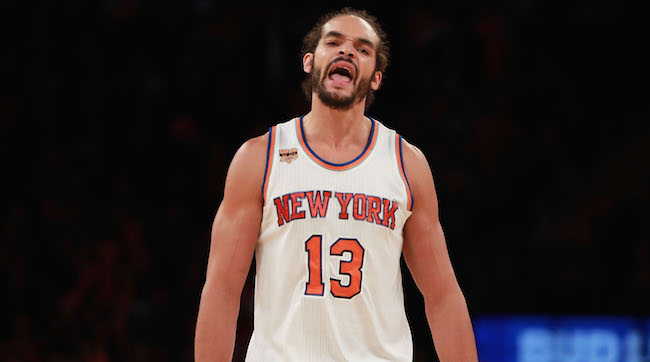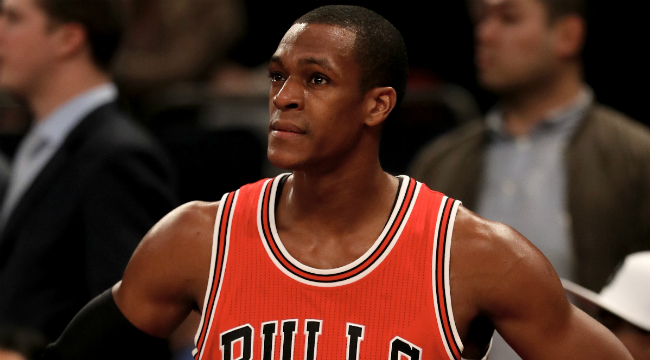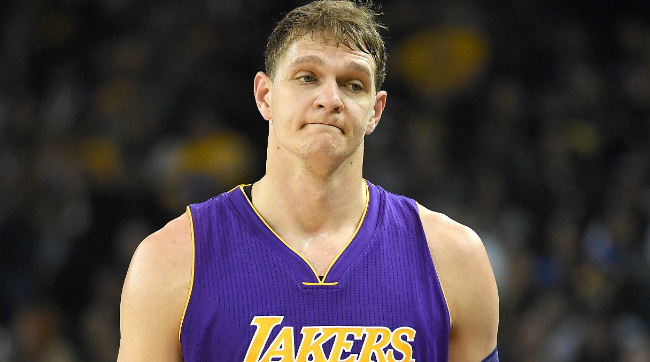
It’s Tax Day, so I hope you filed your tax returns and will receive lots of your hard earned money back, rather than owing a significant amount or catching a dreaded audit from the IRS. While most of us that file taxes fall into the lesser tax brackets, NBA players find themselves at the top of the tax-paying food chain.
A multi-million dollar contract means that a great deal of your money goes back to the United States government (and the state, depending on where you live). This is something young NBA players have to learn quickly, as that $4 million per year looks an awful lot more like $2 million after everything is said and done, so they must budget accordingly.
While some young players may find themselves under-compensated for their contributions due to the rookie salary structure, there are plenty of veterans who make up for it on the cap sheet and in their tax filings by making far more than their on-court production would indicate they are worth. Now, as any good capitalist will tell you, there are no bad contracts because the free market dictates pay and therefore there can’t be a “bad” deal, but we know that’s not the case. Here are five of the worst contracts (or combinations of contracts) in the NBA.

5. Jeff Green, Orlando Magic: 1 year, $15 million (expiring) and Bismack Biyombo, Orlando Magic: 4 years, $72 million (3 years remaining)
It’s really hard to pick just one, but last year the Magic paid Green $15 million (9.2 ppg, 3.1 rpg) and Biyombo $17 million (6 ppg, 7 rpg) to not do a lot of successful basketball things. I get that Green is a fairly harmless 1-year deal, but for the production that’s pretty bad. Biyombo was coming off of a great year in Toronto, but most people could have foreseen him not meshing with the frontcourt logjam in Orlando. These contracts are among the reasons GM Rob Hennigan is now looking for a new gig.
4. Rajon Rondo, Chicago Bulls: 2 years, $27 million (1 year remaining, $3 million guaranteed)
The Bulls were smart to give themselves the possible out with only $3 million in damage for next year, but like the Biyombo deal, it wasn’t hard for most to see that Rondo wasn’t going to fit well with Jimmy Butler and Dwyane Wade. They had their beef and have since moved on, with Rondo averaging 7.8 points, 6.2 assists, and 5.1 rebounds per game in his 69 appearances. Rondo can still put up decent stats, but he’s never found a locker room he’s meshed with since his Boston days.
3. Evan Turner, Portland Trail Blazers: 4 years, $70 million (3 years remaining)
The Blazers forked over a lot of money to Turner in hopes that he would provide the wing help they were looking for along with bringing Allen Crabbe back to complement their dynamic backcourt. It didn’t work particularly well, and while he was very good in Game 1 against the Warriors, Turner struggled this season to 9.0 ppg, 3.8 rpg, and 3.2 apg.

2. Timofey Mozgov, Los Angeles Lakers: 4 years, $64 million (3 years remaining) and Luol Deng, Los Angeles Lakers: 4 years, $72 million (3 years remaining)
The Lakers had to spend money this offseason, I get that, but considering they literally sat both of these guys down the stretch to try and lose, these deals look pretty bad in hindsight. Adding veterans to the locker room is a good thing for a young team, so the Deng contract feels more forgivable, but to give both guys four years was excessive. These are going to be albatrosses next offseason when the Lakers are finally trying to be good and have to find someone to dump these on.
1. Joakim Noah, New York Knicks: 4 years, $72 million (3 years remaining)
Don’t let all of the drama between Carmelo Anthony and Phil Jackson, along with the Charles Oakley-James Dolan fiasco, distract you from the fact that Jackson handed $18 million per year to the injury-prone Noah. This looked bad at the time, even with the salary cap spike making it a bit more difficult to spot a bad deal, and now somehow looks worse after Noah’s season ended with knee surgery and a drug suspension. Only two more years of Phil, though! Maybe.






